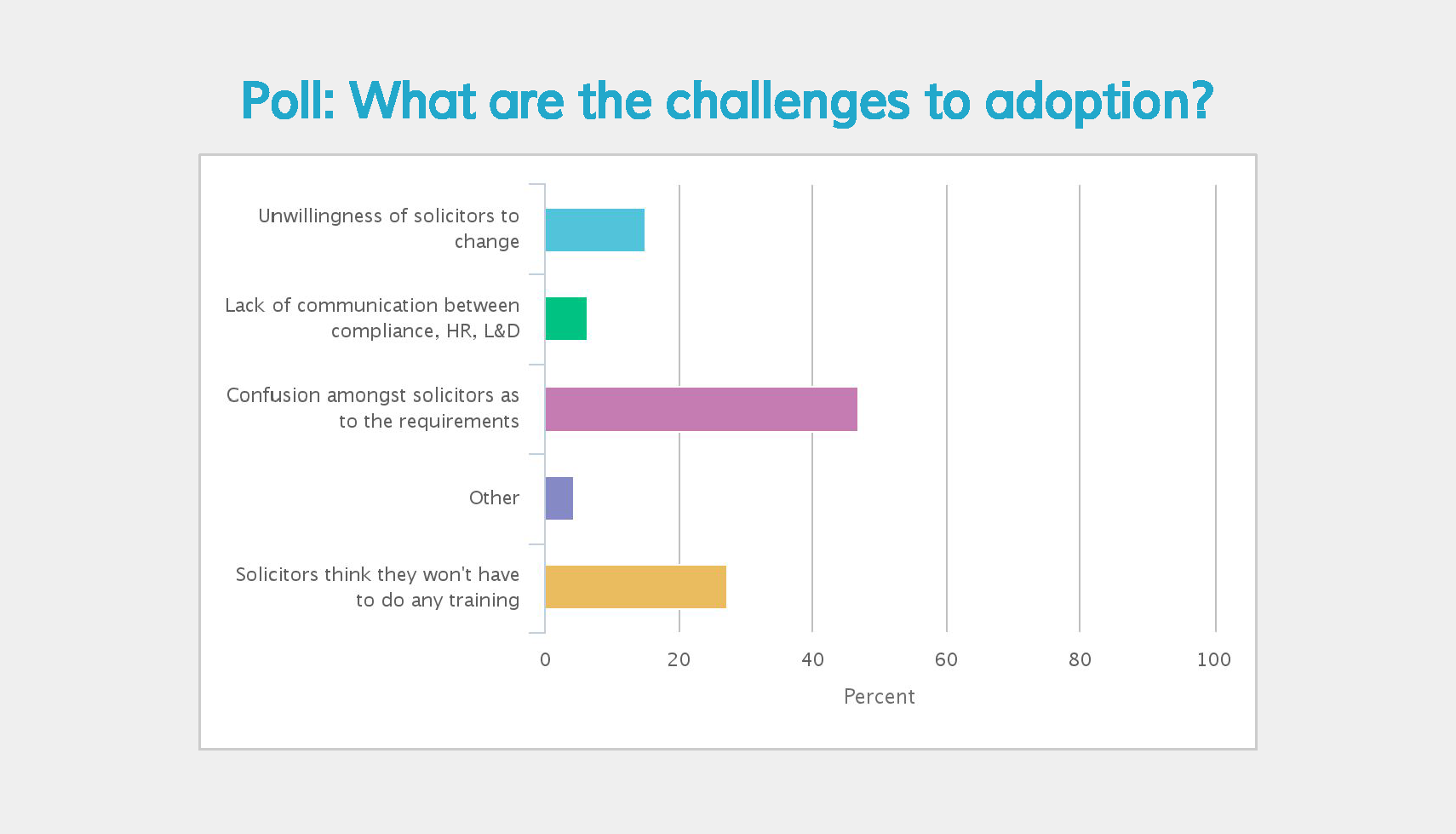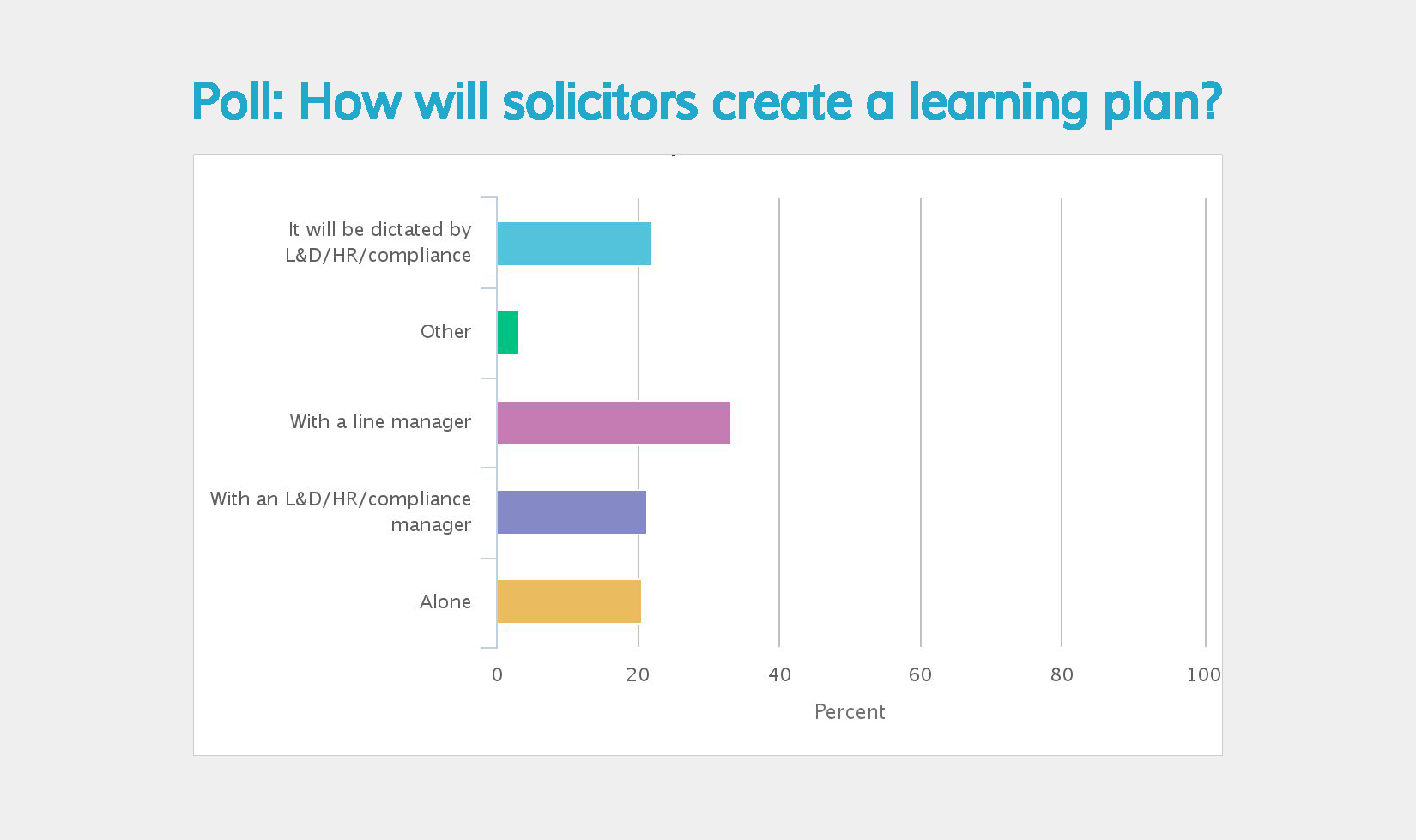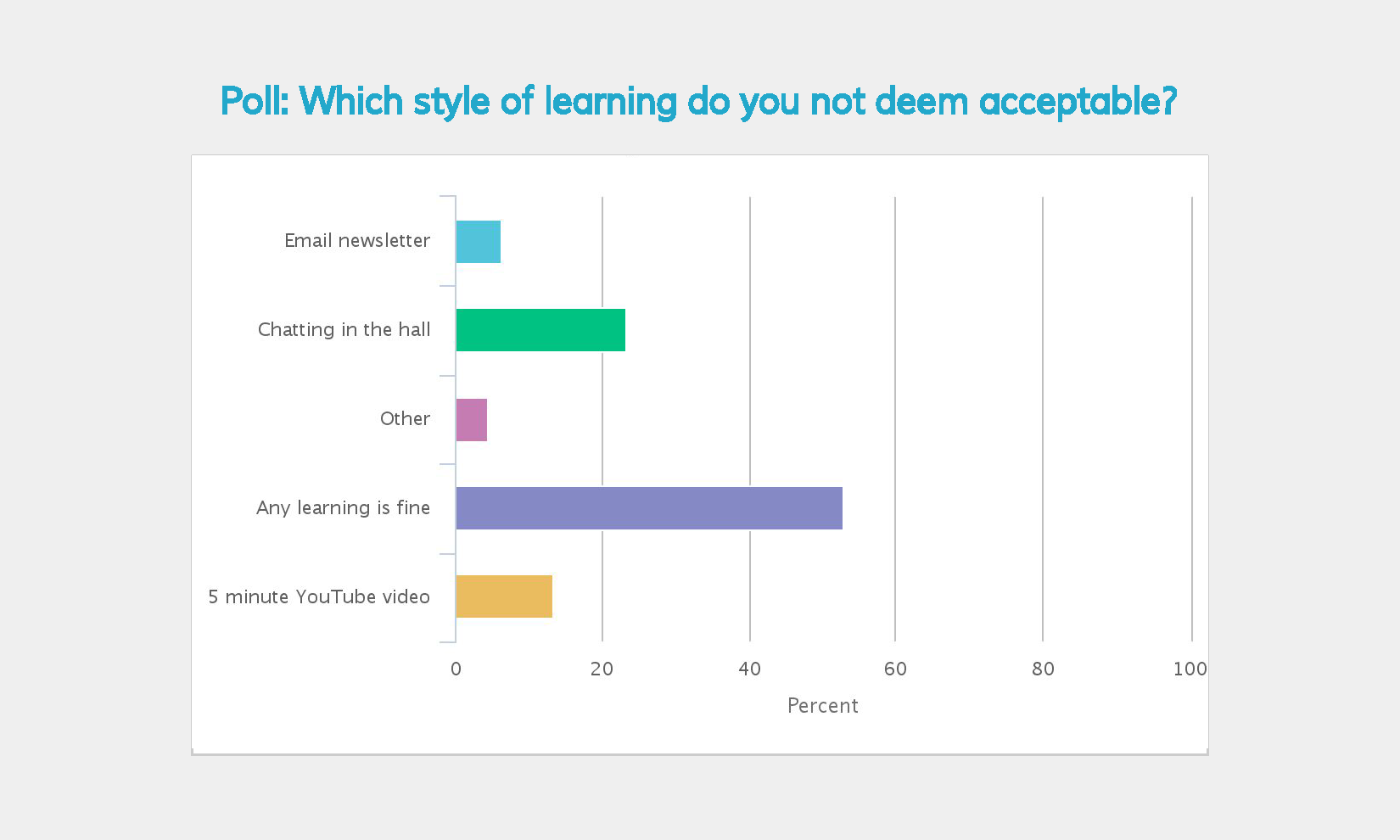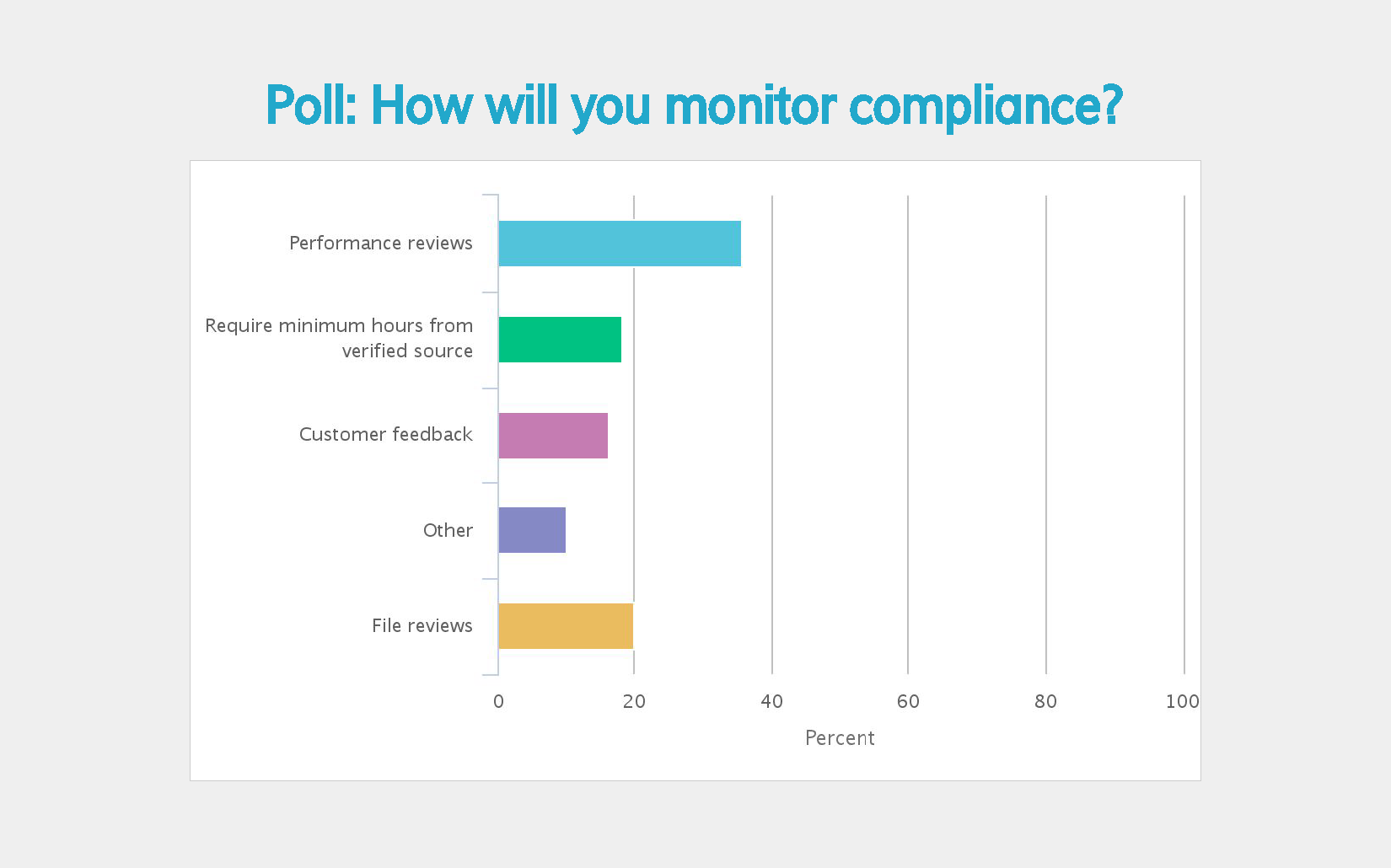Over the past year we have have conducted scores of interviews with law firms, solicitors and leading SRA officials on the topic of continuing competence. Below is a compilation of the most frequently asked questions. The SRA’s view is from Senior Policy Advisor Richard Williams who spoke with VinciWorks Director of Practice Gary Yantin.
16 hours worked fine for 30 years. Why the change?
Under the 16-hour approach there was never a guarantee that CPD was resulting in more competent solicitors. One of the roles of the SRA is to protect the interests of the public and ensure access to skilled legal work. This is the purpose of Principle 5 of the Handbook: “you must provide a proper standard of service to your clients.” The new approach focuses on achieving that goal, not micro-managing solicitors’ time.
We are in the middle of the second optional year. How is adoption coming along?
Internal polling at the SRA shows that a majority of firms have already adopted the new approach. The SRA has heard from many firms who are reaping benefits from the change. Despite the good news, the SRA still recognises that it will probably take many years for firm culture to shift away from a tick-box mindset to a culture of competency.
How challenging do you think it will be for firms to adopt the new approach?
For most firms trepidation about change is probably more challenging than the actual adoption. In research that the SRA conducted when preparing for the new approach, it discovered that many firms already have systems in place for learning reviews and performance reviews. These types of activities are exactly what the SRA expects will be a fundamental part of continuing competence. Therefore for many firms the internal procedures necessary for the new approach are, in fact, already in place.
What does enforcement look like under the new approach?
There needs to be a shift in mindset. What the SRA is enforcing is not necessarily whether people have full learning plans, rather it is enforcing Principle 5. Under OFR a regulator should not look at any particular regulatory requirement in isolation.
The SRA takes a risk-based, holistic approach to compliance. They track complaints, tips, other factors, info from the PCRE etc. to establish who might be an at-risk solicitor or an at-risk firm. They will then have a discussion with the solicitor or firm in which they will evaluate the training records to see if any further action is necessary.
What records do solicitors have to keep?
There is an expectation that firms will keep copies of learning reflections and training records. In the event that a solicitor’s competence is questioned, the SRA might request a copy of those records. There will not be a requirement that the records be kept for 6 years, as was required in the past. The requirement will be for records related to current issues of competence.
Does the requirement fall on the firm or the solicitor?
The requirement of Principle 5 to “deliver a proper level of service” is true for both solicitors and firms. Therefore the obligations of continuing competence fall on both. In addition, in order for a firm to deliver a “proper level of service” firms will be required to train and ensure the competency of non-lawyers and administrative staff.
Can you really sign the annual declaration without doing any training?
A solicitor that considers his/her needs and decides that no training is required, can indeed tick the box on the annual statement. The statement is:
“I have reflected on my practice and addressed any identified learning and development needs.”
If you have reflected on your practice and genuinely not identified any learning and development needs, then you do not require training.
Some firms are planning to continue requiring 16 hours, or 4 hours from approved providers as a means of monitoring compliance. What is the SRA’s view? Is this an effective means of monitoring?
The SRA is aware of this approach and they have even heard of firms requiring 32 hours! Ultimately from the SRA’s perspective any number of hours is arbitrary. They will be regulating competence not a number of hours. Despite this fact, this might be a sensible way for a firm to measure competence on a macro level.
Under the new approach, will Solicitors likely train for more or less than 16 hours?
There is no rule for whether there will be more or less learning under the new system. The amount of learning undertaken depends on a range of factors including seniority and area of practice. From VinciWorks conversations with firms another factor will be the firm’s’ own attitude to learning. For most of the firms we spoke to there is a common view that erring on the side of doing more learning can do no harm.
How flexible are the new types of learning?
Completely flexible. Any learning is valid if it meets an identified need. From speaking with early adopter firms, VinciWorks has identified this as an area that solicitors and their firms are likely to struggle with in the early years of competency. While the SRA are keen to point out that watching YouTube or listening to podcasts are adequate forms of learning, the firms we have spoken to appear to be sticking with tradition for now with classroom and online modular learning being the favoured forums.
With the removal of accredited training suppliers, we wanted to know if there was a concern about a decline in quality
The SRA have no such concern. It is up to the market to create good quality learning without being restricted by having to achieve and maintain SRA approval. The SRA maintains that the market will do a far better job of establishing learning leaders than the SRA could. With this level of freedom from suppliers and for solicitors, alternative methods of learning are likely to emerge. Most firms will be watching their peers and competitors in the early years for guidance on what works.
The VinciWorks Continuing Competence Module
VinciWorks has developed a full software solution for compliance with the SRA’s new approach to continuing competence. The module is free for individuals and includes optional monitoring tools for firms. Click here to learn more and sign up for free.
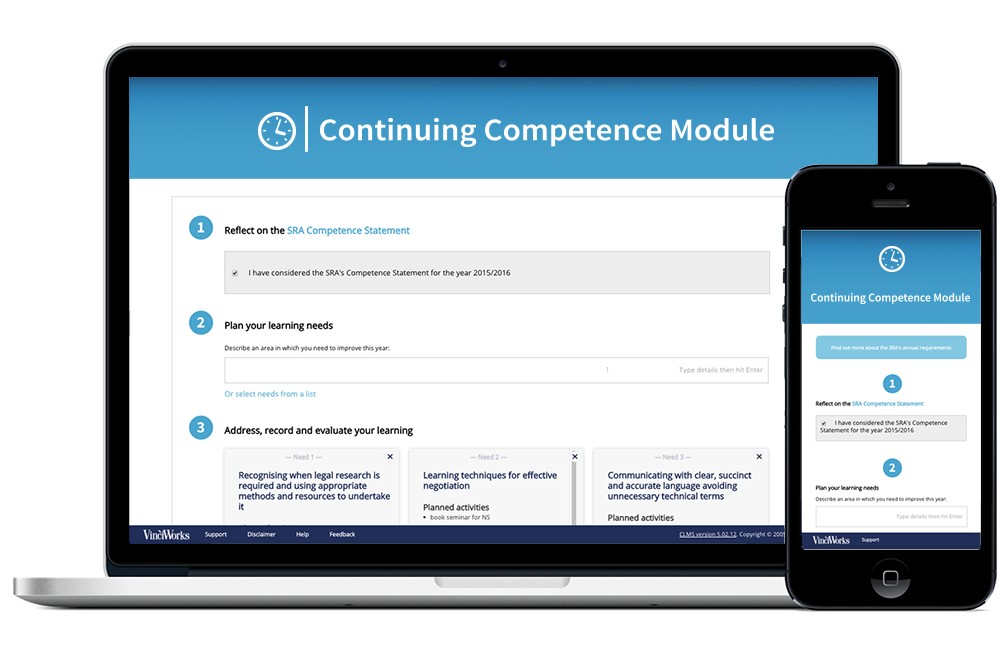 The SRA’s new approach to continuing competence comes into effect Nov 1.
The SRA’s new approach to continuing competence comes into effect Nov 1. 1. Become Experts
1. Become Experts 3. Record your learning
3. Record your learning




